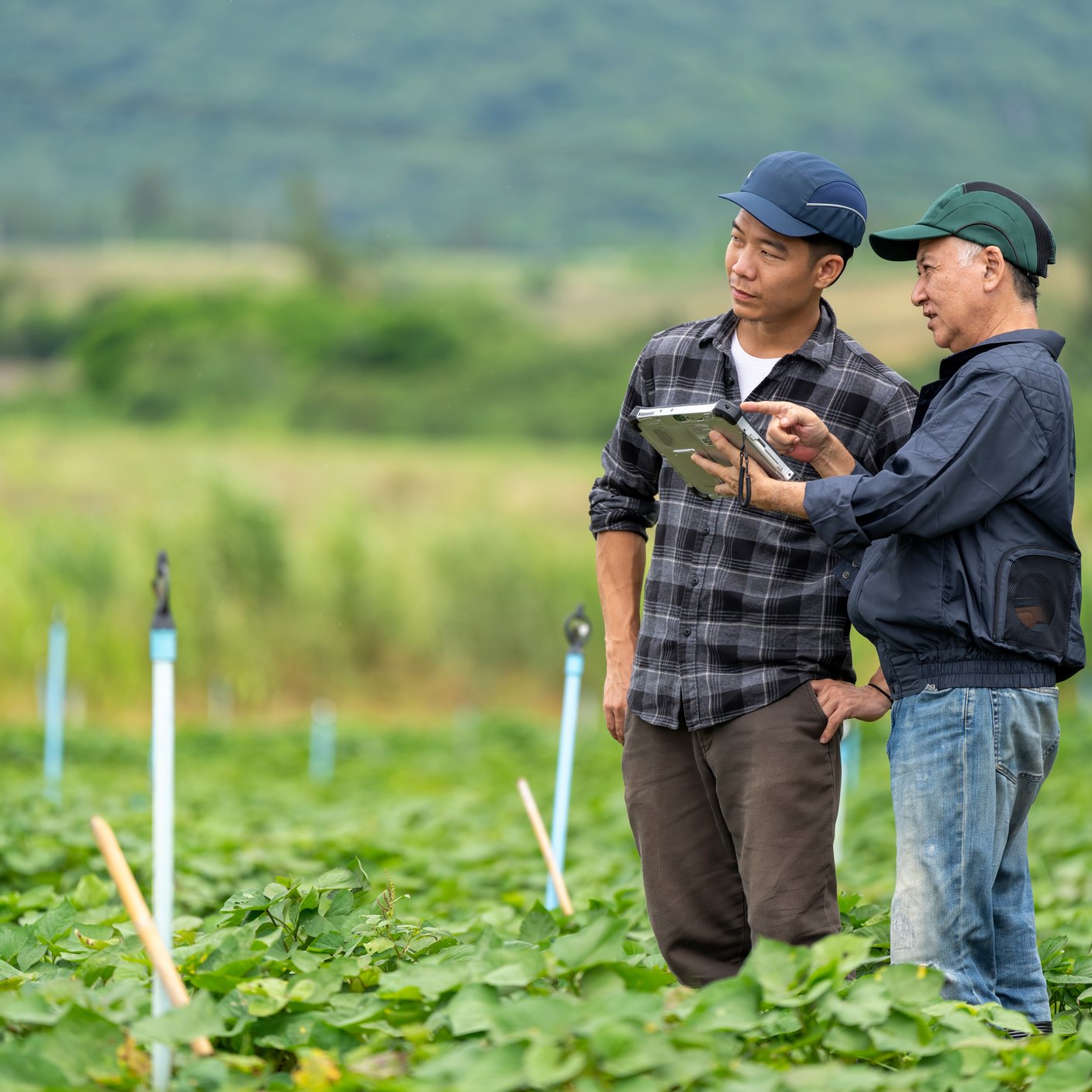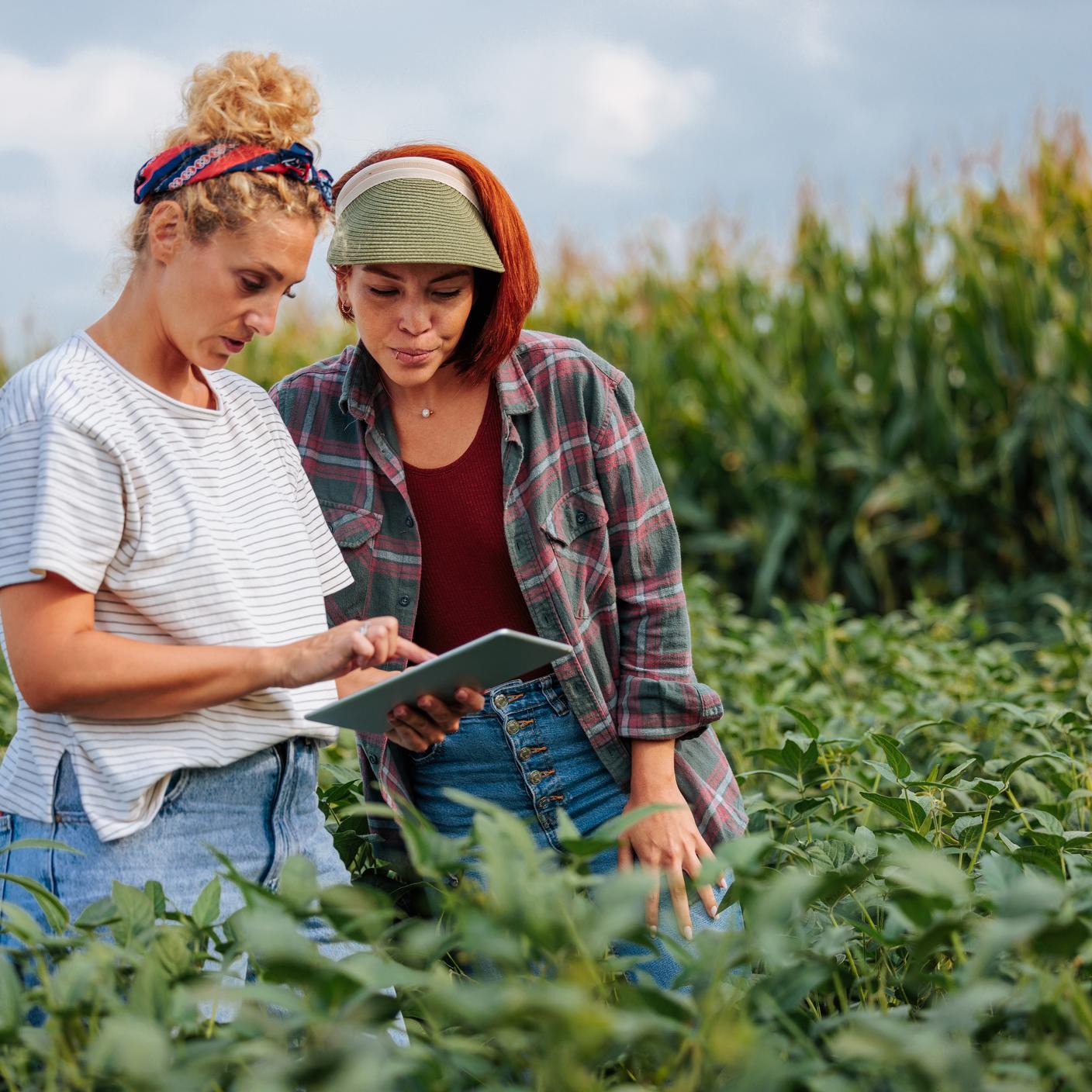As part of BSI’s Net Zero Week 2025, experts came together for the webinar ''How Can Agri-Tech Advance the Transition to Net Zero?'' to discuss how technology, finance and standards can accelerate agriculture’s role in the journey to net zero. Their insights made one thing clear: the future of farming will be defined not only by innovation in the field, but by the frameworks that allow innovation to scale with trust.
The global transition to net zero places agriculture at the heart of climate action. As one of the more emission-intensive sectors, farming faces an urgent need to innovate while maintaining productivity and resilience. Farming is both a contributor to greenhouse gas emissions and a critical part of the solution, capable of sequestering carbon, and restoring biodiversity. The rise of agri-tech represents a vital pathway for achieving this transition. Yet, as experts at BSI’s webinar on agri-tech made clear, realizing its potential depends as much on policy, finance and standards as it does on technology itself.
The agricultural challenge
Agriculture accounts for around 12% of the UK’s total greenhouse gas emissions (Agri-climate Report, 2024, GOV.UK), and its reduction trajectory has been slow. “Very little has changed in terms of emissions in the past 35 years,” observed Dr Vera Eory from Scotland’s Rural College (SRUC). Despite policy initiatives and efficiency gains, the sector has achieved only about a 15% reduction in emissions, far behind progress seen in energy and industry.
However, Dr Eory also noted a turning point: “There is a glimmer of hope for improvement.” Her team’s analysis for the Climate Change Committee’s seventh carbon budget demonstrated that combining on-farm emission reduction measures with systemic food-system changes could achieve a 40% cut in agricultural emissions by 2045. This, she argued, will require more than voluntary action. “Voluntary approaches are not working,” she said. “We need to think about implementing more robust interventions.”
The challenge lies not only in changing farming practices but also in connecting fragmented efforts. “There are loads of data flying around,” Dr Eory explained, “but they are not joined up.” From soil monitoring to livestock genetics and satellite observation, vast amounts of agricultural data remain siloed, undermining the ability of policymakers, farmers and investors to track progress towards net zero.
Agri-tech as an enabler of transformation
Against this backdrop, agri-tech offers both efficiency and insight. It enables precise resource use, real-time monitoring of soil and livestock, and measurable carbon management. As Jonathan Scurlock, Chief Adviser on Renewable Energy and Climate Change at the National Farmers Union (NFU), noted, many farms are already embracing renewable energy, automation, and electrification as part of their net zero journey. “Farm businesses are installing rooftop solar, developing small anaerobic digestion systems and exploring on-farm energy self-sufficiency,” he said.
Emerging technologies from robotic tractors to solar-powered farm droids are helping farmers maintain productivity while cutting emissions. “Electrification of virtually anything on wheels is going to be the future,” Dr Scurlock said. These innovations, alongside data-driven precision agriculture, alternative proteins, and new soil management techniques like biochar application, can dramatically reduce the sector’s environmental footprint.
However, Dr Scurlock warned that innovation must be accompanied by regulatory agility. “Regulatory reform is essential,” he said, pointing to restrictions on the use of drones and insect farming that are holding back the UK compared with European counterparts. “We need to ensure our regulatory frameworks enable innovation rather than inhibit it.”
The role of policy, finance and standards
The UK government recognises agri-tech as a cornerstone of sustainable growth and emissions reduction. Sarah Kaya, Senior Policy Adviser at DEFRA, explained that “Agri-tech is recognised as a priority sector within the Industrial Strategy’s Advanced Manufacturing Plan.” The government, she said, aims to grow the sector’s turnover from £13 billion to £20 billion by 2035, “through committing at least a further £200 million” in public investment and facilitating private co-funding. To date, “over 300 projects and over £150 million” have been supported through the programme, including thematic competitions focused on climate-smart farming and low-emission agriculture.
DEFRA’s approach combines fiscal levers, commercialization support, and skills development. “It’s not just about grants,” Kaya clarified. “Government is thinking more broadly about barriers such as access to finance, regulation and a more skilled workforce.” The department is also supporting infrastructure development through new agri-tech manufacturing accelerators, robotic demonstration hubs, and regional innovation clusters.
Tim Coates, farmer and Chief Investment Officer at Great Yellow, emphasised that the transition to net zero will only succeed if agri-tech is both investable and accessible. “The UK is very good at R&D,” he said, “but actually scaling and getting technology into the hands of those who need to use it — that’s where we fall short.” Many farmers, he argued, are “not financially resilient enough as businesses” to invest in high-cost, high-risk innovation.
Coates called for ‘blended finance’ models that combine public and private capital to share risk and accelerate adoption. “It’s not just the agri-tech solutions that need good financial support,” he said. “It’s the farmers themselves.” He added that investors are now prioritising resilience “of our landscapes, our food chains, and our finance” as a new paradigm for sustainability.
This is where standards become indispensable. As BSI’s Food Sector Lead, Emily Field, reminded the audience, BSI’s mission is to “develop standards that promote safety, efficiency and interoperability.” In agri-tech, these standards are key for the net zero transition, ensuring that data is reliable, systems are compatible, and sustainability claims are verifiable. They underpin everything from carbon measurement and data sharing to AI governance and farm equipment safety.
The net zero transition
The transition to net zero in agriculture will depend not just on invention but on integration. Agri-tech provides the tools, but standards, finance and regulation must provide the structure. As Dr Eory concluded, “reducing emissions from agriculture is key, but even more important is a transition in the food system, which we have to initiate now to achieve the economy-wide net zero goal.”
From smart sensors to robotics, from data standards to finance mechanisms, agri-tech is the connective tissue linking innovation and climate ambition. With the right standards and coordinated investment, the UK can lead a global model for low-carbon, resilient and technologically advanced farming, transforming agriculture from an emissions source into a net zero champion.
Data, standards and the path forward
The BSI webinar made clear that data is both a barrier and an opportunity. As Dr Eory highlighted, “there is potentially a very big opportunity here by thinking about how to join up and link data better to serve both public and private interests.” Consistent data standards can underpin greenhouse gas inventories, enable accurate carbon accounting and give investors’ confidence in sustainability metrics.
This is where the role of standards becomes transformative. National and international frameworks for data quality, measurement methods and privacy protection ensure interoperability and comparability across technologies and markets. They provide the ‘common language’ needed for the public sector, farmers and industry to collaborate effectively.
As Coates concluded, “the big investment case now is around resilience, of our landscapes, our food chains, and our finance.” Agri-tech innovation, underpinned by robust standards and policy support, can help build resilience ensuring that the UK’s transition to net zero is not only technologically advanced but economically and environmentally sustainable.
The coming years will be pivotal for the future of farming. As the sector accelerates toward net zero, the UK has a unique opportunity, not only to lead in agri-tech innovation, but to define the trusted frameworks that will guide global transformation. BSI remains committed to working with farmers, policymakers and industry partners to develop the standards that can turn climate ambition into climate action, ensuring technology is safe, interoperable and capable of delivering real, measurable change.
To explore these issues in more depth, watch the full discussion on the BSI Net Zero Week 2025 webinar page: "How Can Agri-Tech Advance the Transition to Net Zero?"







